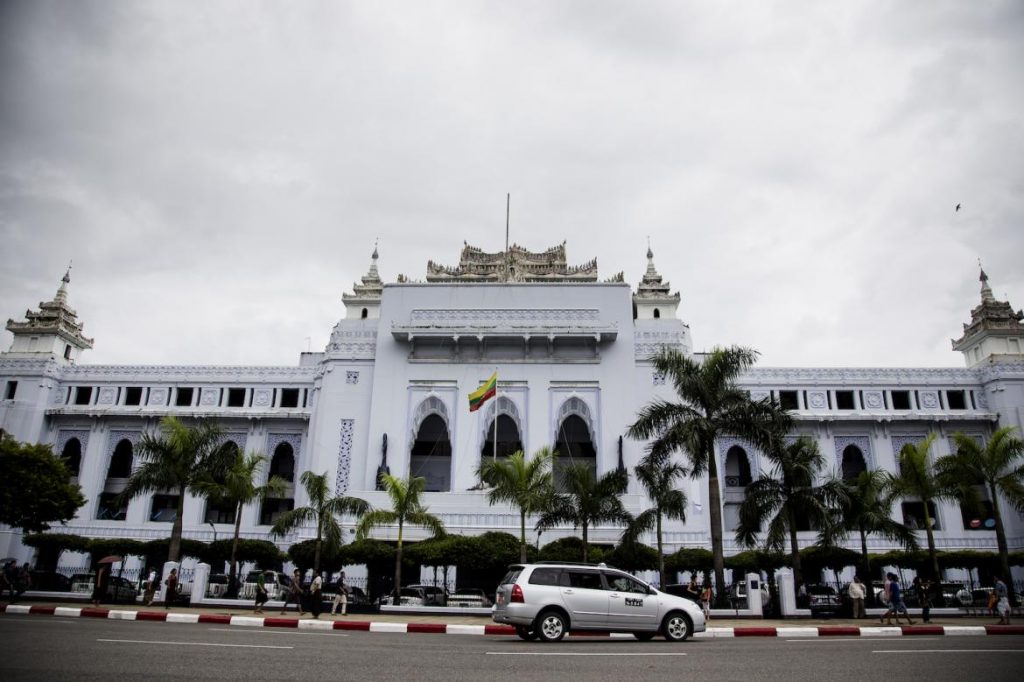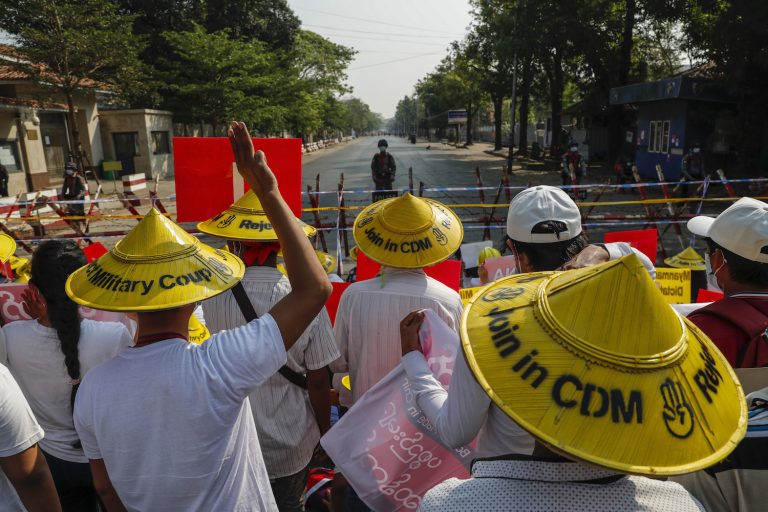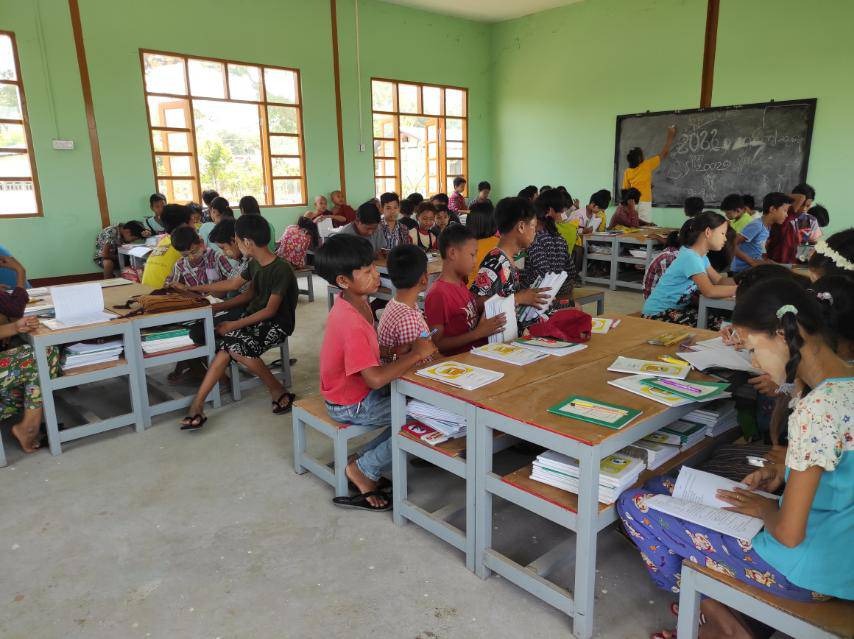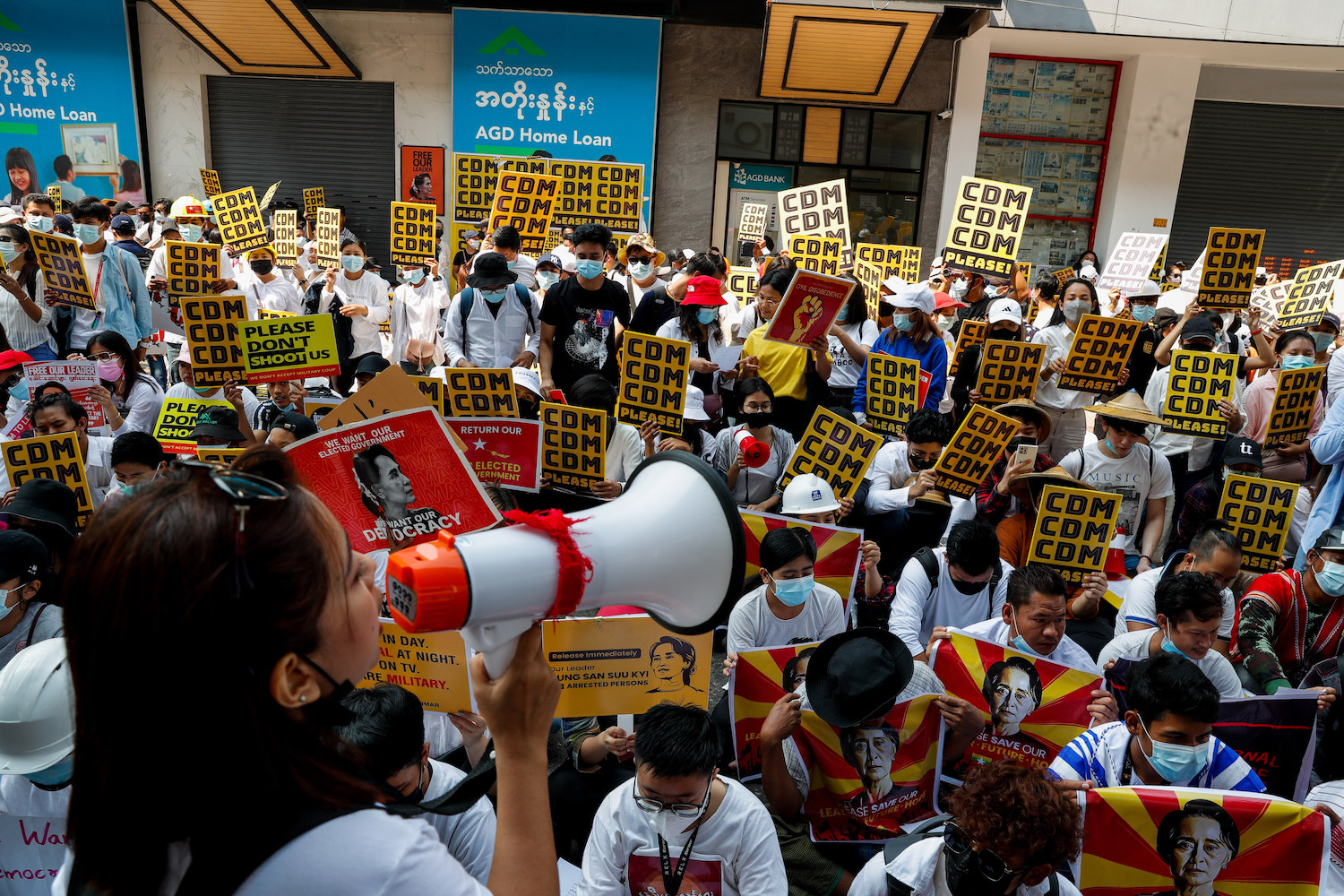An ‘evolutionary approach’ to change management offers a practical solution to the challenge of reforming Myanmar’s system of government.
By HENRICH DAHM | FRONTIER
It is widely understood that reforming the government system is a daunting task. It presents significant challenges and requires strong capacity and capabilities to manage such reform. The task seems too overwhelming to dare begin the process.
It is tempting, therefore, to continue concentrating on policy reforms that can be enacted quickly, instead of risky organisational restructuring, which is difficult and will take time. But, ultimately no policy reforms will be successful without an effective and efficient government system capable of implementing them at the national and regional level.
The crux of the problem in Myanmar is a mismatch between the nature of the challenges and the political and organisational capacity needed to respond to them. Most Myanmar government agencies lack the political and organisational capacity necessary to tackle the challenges they face.
The conditions for change in Myanmar are insufficient to allow the direct, one-off transformations achieved in many other countries. It involves a complete transformation of ways of working and demands that agencies have sizable resources, political support and stakeholder buy-in, enabling them to tackle challenges head-on and implement the preferred model in one step.
Support more independent journalism like this. Sign up to be a Frontier member.
However, experience in other Asian countries shows that the capacity and capabilities needed to sustain change can be developed during the process of change itself – as long as agencies do not try to undertake more change than they have the capacity to manage.
In this case, rather than pursue an overly aggressive and ambitious change agenda, that poses a significant risk of failure, government agencies seeking to achieve high performance can choose an “evolutionary approach” to change. This change management approach emphasizes that practical small-scale solutions can be as useful as big, groundbreaking ideas.
This approach to change management also entails a long and often gradual implementation journey by agencies. It begins by working towards the most appropriate level of reform by adopting manageable change objectives in the interim – objectives that are less challenging and require less organisational and political capacity to implement.
The necessary reforms can be broken into discrete steps – each intended to lay the foundation for the next by overcoming an immediate challenge and creating new capacity to address the next obstacle. Its strength is that it allows the building of capacity before each next step is taken. This ensures that progress is made and that no single challenge becomes sufficient reason to stop the initiative.
Each step is built to manage what can be managed while implementing the capacity needed to manage the next one. The trick is to be ambitious and realistic, understanding that intermediate goals represent not a compromise in aspirations but a way to connect the present to the long-term future.
Although the evolutionary approach allows for creating a new system, a critical factor for implementing changes effectively is great leadership. Success hinges on having the right people apply the right initiatives in the right sequence.
Public administration in Myanmar has few people with the skills and vision to lead the process, with the result that a small number of bureaucrats have an enormous workload. Therefore, the reform process has to be simultaneous with building capacity in the bureaucracy, at all levels, and especially the middle and lower levels, who are the interface with the public.
While much training has focused on specific subjects or topics, which is important, there is a lack of information and assistance related to addressing system change and transformation. Civil servants are left alone to deal with these issues, creating a void that leads to uncertainty, instability, and disjointed efforts.
People at all levels need to be trained in effective “problem solving skills” – that is, developing ways to involve people in improving performance and redesigning their work. The training needs to be tied to on-the-job projects that have a direct impact and improve efficiency. The ability to train participants in new skills, while also giving them real work experiences to apply new approaches and hone their skills, is essential to shift from a passive compliance mentality to an active management mentality.
A challenge the transformation process will encounter as a change management program is being implemented is faltering momentum because civil servants will not change the way they work. HR practices, organisation structure, and technology systems can hardwire new ways of doing things into an organisation, but ultimately the failure to modify culture will permit old decision-making and activity patterns to persist. Thus, culture must be tailored to support the transformation by changing attitudes about what can and should happen at work.
A good example is resistance to decentralisation, the implementation of which is hampered by concerns among bureaucrats that the new policy will bring dramatic change, that they do not trust their subordinates and that they resent the idea of relinquishing control.
Civil servants will alter their mindsets only if they see the point of the change and agree with it – at least enough to give it a try. The surrounding structures (reward and recognition systems, for example) must be in tune with the new behaviour. Only when they feel comfortable and equipped to manage change will the barriers start to come down and decentralisation begin to be implemented with enthusiasm.
Ultimately, the evolutionary change management approach is a pragmatic but effective approach that will produce quick wins while fostering a change in the attitudes, culture, ways of working, systems and governance required for a move to a new level of governance.
It is also important to be aware that government reforms do not happen in isolation – they affect the whole country and all its people. The transformation must proactively position citizens to be ready, willing, and able to successfully adopt the changes being implemented as a result of the change of government. Citizens must also be motivated to transform themselves with the government.
Many reform initiatives represent a fundamental change to the way people will deal with government agencies. In many cases citizens will have a chance to be more active and participate in decisions affecting their lives. Not only must the government be willing to engage, but there must be a genuine demand from civil society and the population. People at all levels must be willing to engage, and must engage each other. If they are not, something is wrong and change risk rises dramatically.
The first pilot projects with participatory planning at the regional level show that people are reluctant to engage the government and express ideas openly. The consequences of years of suppressed and restricted thinking is a limited ability to actively plan for the future.
The stakes are high, because political trust is a scarce resource in Myanmar. One of the greatest challenges for the reform process is to restore trust between the state and the public. A change management strategy can help to build trust and prepare citizens for their new role.
It is not enough to inform them about changes. They must be helped along the way to grow into their new roles as participants of the reform process.
Myanmar government agencies can be mysterious places. But the solutions to reforming them are not. It needs to be recognised that successful change is possible and that a proven set of change management techniques are available. These techniques can mitigate risks and help tame the multi-headed beast that major reform represents for government, but are not a cure-all and will not insulate from the effects of resistance.







